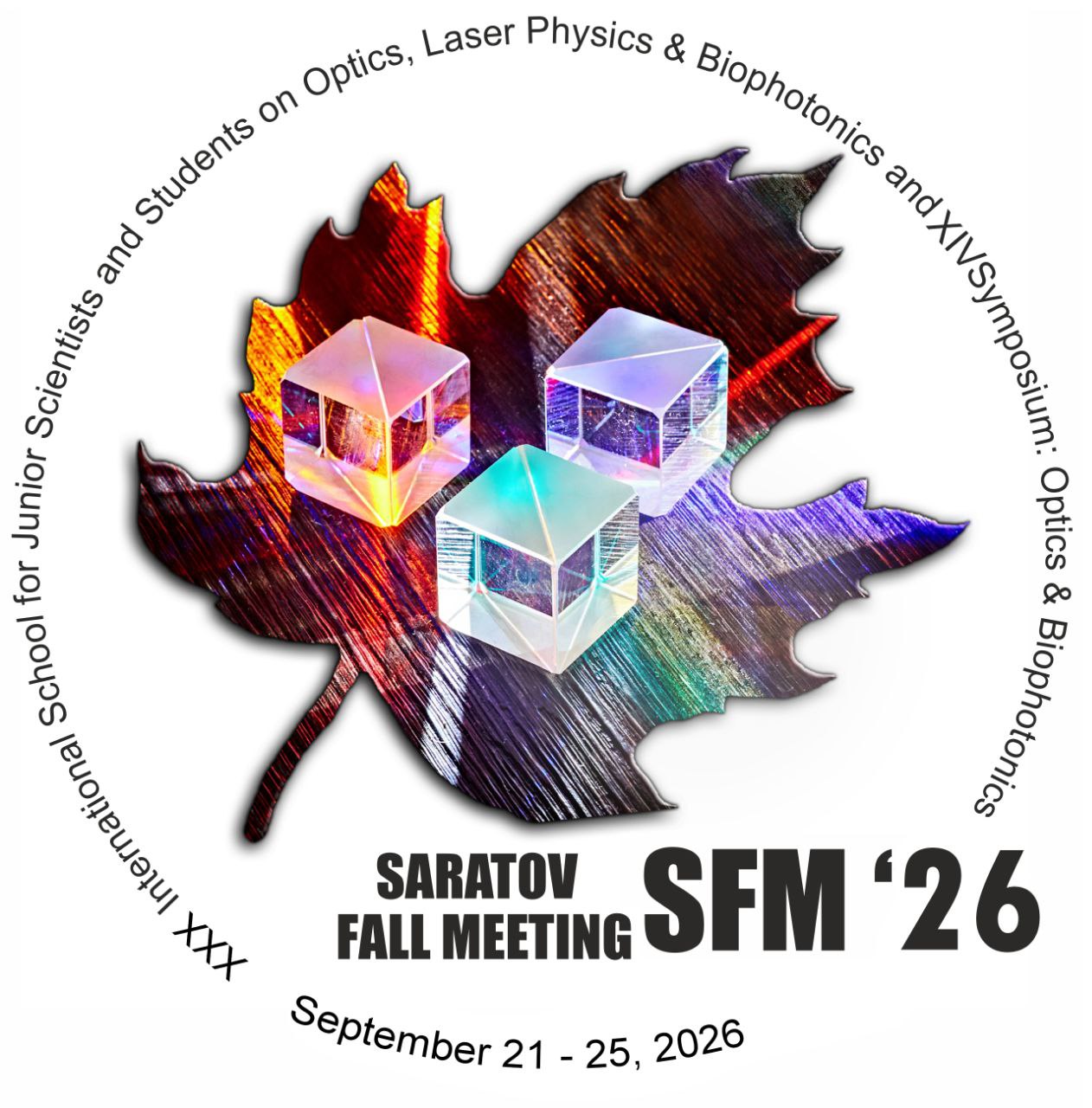Photocytotoxicity effect of polyelectrolyte microcapsules with chlorin E6
Irina A. Khutorskaya,1,2 Ekaterina P. Brodovskaya,1 Denis E. Yakobson,1 Mikhail N. Zharkov, 1 Vasilisa I. Shlyapkina,1 Amina M. Al-khadj Aioub,1 Larisa A. Tararina,3 Nikolay A. Pyataev,1
1 National Research Ogarev Mordovia State University, Saransk, Russia 2 M.M. Shemyakin-Yu.A. Ovchinnikov Institute of Bioorganic Chemistry, Russian Academy of Sciences, Moscow, Russia 3 A.I.Yevdokimov Moscow State University of Medicine and Dentistry, Moscow, Russia
Abstract
The aim of study was to compare photocytotoxicity effect of polyelectrolyte microcapsules contains chlorin E6 (ClE6) and magnetic nanoparticles with free photosensitizer in the same concentration of chlorin with and without red light on mouse hepatoma cells (Mh22a). Polyelectrolyte microcapsules were made by method layer-by-layer (caps-ClE6). The concentration of photosensitizer ClE6 in the microcapsule suspension was determined of fluorescence intensity. We used concentration of capsules 10-20 per cell and the concentration of free ClE6 56 and 112 pg/cell (2.8 and 5.6 μg/mL). The dark cytotoxicity and the viability after irradiation with red light 660 nm for 15 min of caps-ClE6 and free ClE6 was evaluated using the MTT and NRU tests on Mh22a. The targeting in vitro was determined in Petri dish using permanent magnet during 24 hours and red light irradiation. The cell death assessed using fluorescent dyes (acridine orange and ethidium bromide). MTT and NRU test showed that chlorin-E6 containing microcapsules had less dark cytotoxicity and the same phototoxicity effect when exposed to red light compared with free chlorin E6. The incubation the cells with caps-ClE6 and irradiation with red light could to kill the cells by necrosis and apoptosis in area of the magnet without damage surrounding cells.
File with abstract
Speaker
Khutorskaya Irina
1) M.M. Shemyakin-Yu.A. Ovchinnikov Institute of Bioorganic Chemistry, Russian Academy of Sciences, 117997, Moscow; 2) 1National Research Ogarev Mordovia State University, 430005, Republic of Mordovia, Saransk
Russia
Report
File with report
Discussion
Ask question


